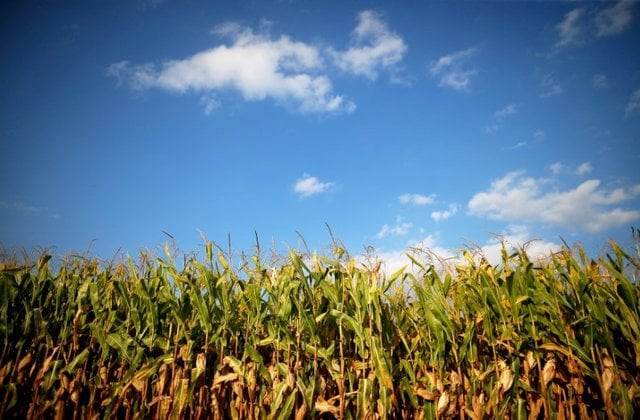Crop yields at risk from rising temperature
Senate panel calls for consulting agro-scientists to mitigate effects

A Reuters file photo of an agricultural field.
Briefing the Senate Standing Committee on Climate Change presided over by Chairperson Munaza Hassan, the scientists said that rice-growing plains of Punjab will see the mercury rise up to 2.8 degrees Celsius between the years 2040 and 2060 following which monsoon rains will be cut by 25 per cent while winter rains will be cut by 12 per cent.
Consequently, they added wheat production would decrease between by six-10 per cent while rice yield will shrink by 15.2-17.2 per cent, which will be equal to 1.16 million tons of production amounting to Rs2.9 billion in losses.
'Our house is on fire': Pakistanis join the world in Global Climate Strike
The agro scientists suggested that the country needed to add up nitrogen content in the cultivation of rice and wheat by 15 and 25 per cent respectively to avert the negative impacts of climate change. They also suggested that irrigation water to the above-mentioned crops should also be cut in similar proportions to maintain the production.
Rice crop nursery should be shifted five days earlier and wheat must be sowed 15 days earlier than the existing time periods. The experts also stressed upon the role of agricultural scientists and university research to combat the probable decrease in crops.
On this, chairperson Hassan said: “Decrement of crops is dangerous for us. To fight this, we have to work with agro-scientists and agro-universities and come up with solid measures and ensure its full implementation.”
‘Country experiencing extreme weather’
Presenting a briefing over the 10-billion tree project, Ministry of Climate Change Secretary Hasan Zafar Jami said the ministry intended to plant 3.29 trees during the next four years. He added the project has recently been approved by National Economic Council’s executive committee and “we have received first funding for the programme”.
Sindh’s forest secretary expressed his fear over the tree plantation campaign in the province, saying that funds have not been issued so far. “It is not feasible to carry out plantation drive during summers,” he the secretary added. In Sindh, “we have surpassed the target for mangrove plantation”.
It was highlighted that committee members must also extend their support to the provincial administration through the afforestation drive.
Zafar also briefed the committee over the collection and preparation of information pertaining to air pollution in Islamabad. He said the authorities information form round-the-clock monitoring of air pollution would be highlighted and shared on social media.



















COMMENTS
Comments are moderated and generally will be posted if they are on-topic and not abusive.
For more information, please see our Comments FAQ